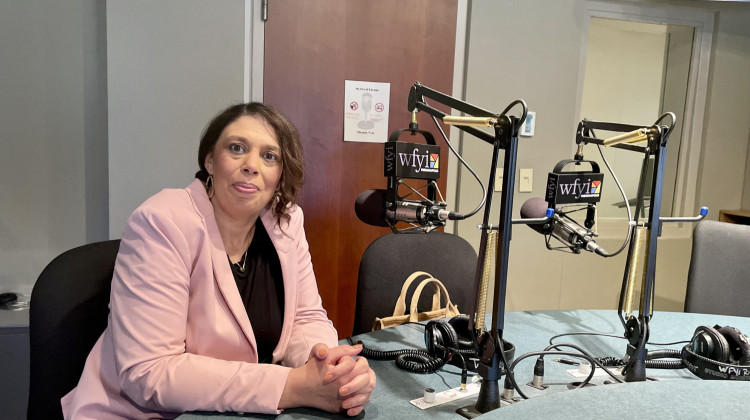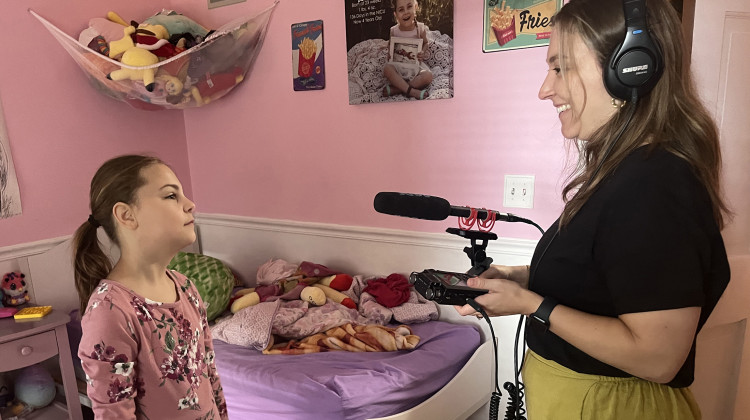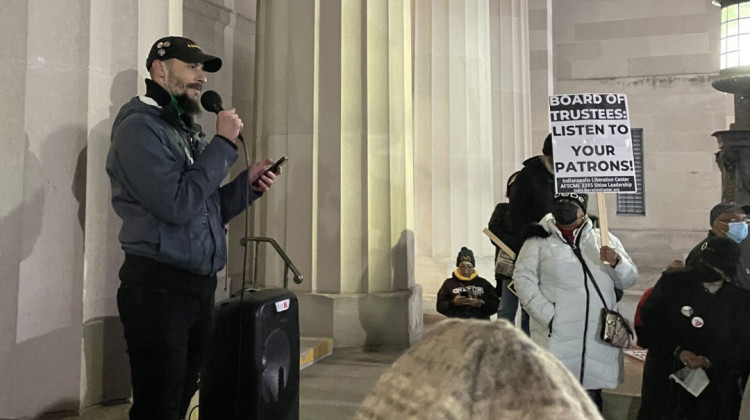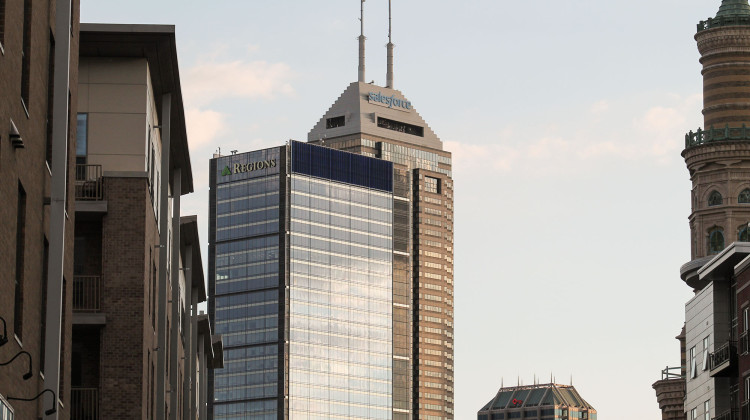
PACE Executive Director Rhiannon Edwards, pictured here in the WFYI studio, visited the station to discuss the program's new location.
Darian Benson / WFYI NewsIndianapolis non-profit Public Advocates in Community Re-Entry, or PACE, assists people re-entering the community after incarceration.
PACE provides services including case management, recovery support and workforce development.
The group recently moved their services to a larger facility at 13th and Meridian. WFYI's Darian Benson spoke with Executive Director Rhiannon Edwards to find out what impact the new space might have.
Darian Benson: Why is a program like PACE important in Central Indiana?
Rhiannon Edwards: Re-entry programs like ours are important because this population is often stigmatized. You know, if you've never lived it and you don't have a family member that's lived it, you don't understand it.
And so, it's easy to villainize, you know, someone that has done something that's illegal, right? And so we're there to not only provide a service, but to advocate and say, you know what, everyone is not a bad guy. They do deserve a second chance. They are okay. They do have children.
And so it's not just the direct service. It's what we can do in the advocacy realm that I would say makes programs like ours important.
Benson: Can you tell me about some of the services PACE provides?
Edwards: Yes, we provide wraparound services to individuals exiting the justice system. Those wraparound services could be, you know, peer recovery coaching, case management, employment readiness, just whatever the needs are of that individual.
Benson: What are some of the barriers people might face after incarceration?
Edwards: The first initial barrier, I would say, is the stigma of incarceration and the stigma of the felony conviction. After that, you know, there's a multitude of barriers from employment, you know, where can I work with the felony? Housing? Where can I live with a felony? You know, can I go to a field trip with my child?
There's just a lot of barriers. Because, you know, the greater community doesn't always understand incarceration and felonies.
Benson: Can you tell me more about your new space?
Edwards: Yes, we were honored to receive a gift from the late philanthropist Christel DeHaan, and we have named our space the Christel DeHaan Turning Point Plaza. We are so gracious to Christel for the nearly $2.8 million legacy grant that we received.
And so we are honored to be able to name our space after her. We're excited because this space is three times larger than our previous space. You know, we've been operating in a very small space for many years, we haven't had space for classrooms. We could operate one class at a time.
Now we have, you know, three classrooms, a computer lab, meeting rooms. And so just the ability to serve more people at one time is honestly the greatest asset of the space. Not only is it on a bus line, but it's beautiful. And so it allows our clients to come in and receive services in a beautiful space.
Benson: PACE was also just awarded a $1 million dollar grant from Yield Giving. How will PACE use these funds?
Edwards: Yes, we're super excited about that. To be honest, we weren't sure if we would make it, you know, over 6,000 people applied for that. And so when we even made it to the second round, we still thought you know what, there's no way we're gonna make it.
And so to be honest, we just found out we got it, we haven't really decided exactly what we're going to do with it. But I can tell you that we want to figure out how to grow into this new space. What programs can we add that we never thought that we would have the ability to add?
We never thought that we would necessarily be in our forever home, which is what we consider this space. And so now this funding allows us the opportunity to really grow into that space and figure out, what programming are we missing? You know, what service are we missing that we didn't necessarily have the funding to do because it is you know, unrestricted.
Benson: Thank you so much for your time today.
Edwards: Thank you.
Contact WFYI health reporter Darian Benson at dbenson@wfyi.org.
 DONATE
DONATE








 View More Programs
View More Programs

 Support WFYI. We can't do it without you.
Support WFYI. We can't do it without you.